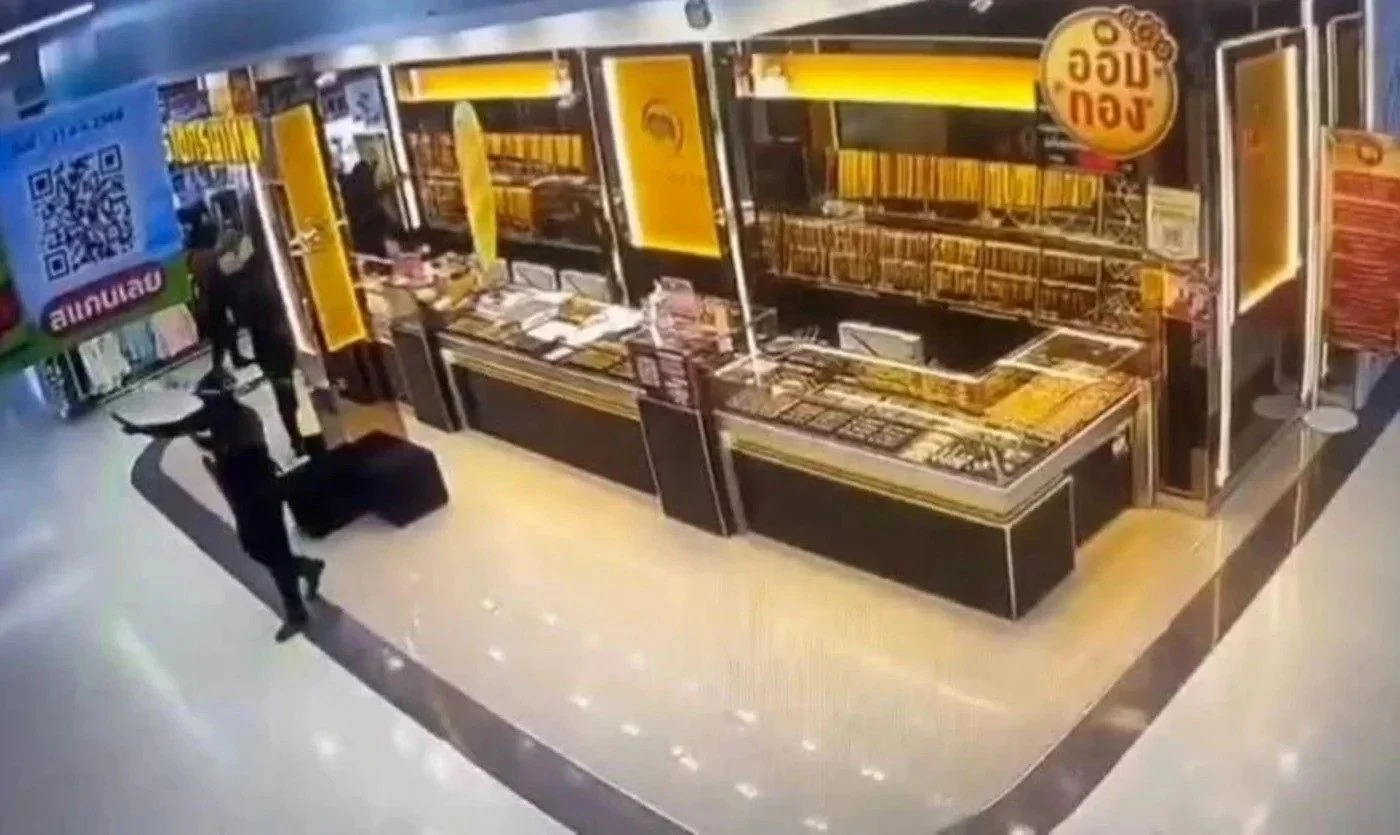Copyright scmp

A million-dollar gold heist in Thailand’s far south by armed robbers who blocked roads with spikes and set explosives to seal their escape across the Malaysian border has rattled the Thai security establishment, as efforts to reignite peace talks in an area roiled by insurgency continue to fall flat. Around 20 men working in three teams carried out the October 5 theft from a gold shop in Sungai Kolok, bordering Malaysia’s Kelantan State. The theft of hundreds of gold ornaments and jewellery valued at 35 million baht (US$1.08 million) came as prices for the precious metal spiked to historic highs of over US$4,200 per 28 grams (one ounce) earlier this month. Using two stolen getaway trucks, the robbers planted road spikes and explosives to obstruct police pursuit in a heist so well oiled that Thai authorities immediately attributed it to the Barisan Revolusi Nasional Melayu Patani (BRN). Two days after the hold-up, Defence Minister Nattaphon Narkphanit said the alleged BRN operatives had already smuggled the gold out of Thailand and that efforts to recover it would require “cross-border cooperation”, without naming Malaysia specifically. The BRN is the primary separatist movement controlling combatants in Thailand’s Malay-Muslim majority south. A shadowy, underground movement, the BRN has led the rebellion against control by Bangkok. It accuses the Thai state of widespread abuses and of railroading the south’s unique Malay culture as well as trying to tip the demographic balance away from the Muslim population by moving in Buddhist settlers from the poor northeast of the country. The BRN typically neither confirms nor denies involvement in violent or criminal incidents, but its cells have in the past been accused of targeting civilians. Violence as resistance The gold heist follows a spike in violence this year, including 88 deaths linked to the rebellion, according to conflict monitor Deep South Watch. “The violence is a form of resistance; even the recent gold heist needs to be understood in those terms,” Asmadee Bueraheng, a Pattani-based writer and long-time conflict observer, told This Week in Asia. “BRN combatants are protesting the Thai economic system, which they see as unfair, the policy of assimilation, which Malay Muslims reject because it comes at the expense of their religious identity, and the government’s transmigration policy, which they see as outside settlers occupying and taking away their land.” An insurgency has blistered across Thailand’s southernmost provinces for over two decades, claiming more than 7,700 lives. Many of those killed were civilians caught in shootings and bomb attacks by rebels as well as assaults by Thai forces. The BRN has been engaging in on-again, off-again peace talks to the Thai government since 2013. Mediated by Malaysia, the discussions have sputtered. Successive Thai governments have shown little political will to resolve the conflict as concessions to the Malays of Patani are deemed costly politically. After decades of grinding stalemate, the BRN’s current leadership has shown a willingness to compromise. Three years ago, the group agreed to negotiate under the terms of the Thai constitution, which explicitly states the country is “inseparable”. This apparent softening of its stance for a separate state makes it easier for talks to take place. “Ultimately, we aim to establish a power-sharing system that guarantees justice, autonomy and recognition of Patani’s distinct identity,” the spokesman for the BRN’s negotiation team, Nikmatulla bin Seri said, using the Malay spelling for the kingdom colonised by Thailand over a century ago. But talks are often undercut by violence that, once unleashed, takes on a dynamic of its own. In April, Thai security forces killed senior BRN member Abdulroning Lateh, a battle-hardened 60-year-old who helped nurture the current generation of combatants that resurfaced in January 2004. In response, his followers hit civilian and military targets, culminating in the May 2 killing of four civilians, including a nine-year-old girl and a 76-year-old blind woman in Narathiwat province. The violence also threatens to spill outside the confines of the south. On June 11, improvised explosive devices were found in Krabi and Phuket – two of Thailand’s top tourist destinations. Their locations were revealed by two suspected BRN operatives who confessed to planting them after they were caught. Instability in Bangkok The lack of concrete progress on peace has been made worse by chronic instability in Bangkok, which has had three prime ministers in as many years. A potential election early next year is set to bring yet another government. After the fall of successive Thai governments under Thaksin Shinawatra’s Pheu Thai party, hopes for peace talks to résumé and a political deal to the conflict have receded. The new short-term government of Prime Minister Anutin Charnvirakul has appointed a new chief negotiator for the deep south process, despite his government’s curtailed four-month tenure. Retired general Somsak Rungsita, a former secretary general of the National Security Council, will lead the Malaysia-mediated talks. His task is urgent. If peace cannot be struck soon, future BRN leaders may be less accommodating, warns Artef Sokho of The Patani, a peace advocacy group which sometimes acts as a go-between with the rebels and the Thai side. “BRN elders command a great deal of respect from their people,” he said. “Right now, they are willing to negotiate for a fair deal. But if and when these ageing leaders step down or pass away, I’m not so sure the next generation of leaders will be as accommodating.” Thai security chiefs have raised the prospect of reintroducing an emergency decree on swathes of the restive south, where it had been lifted as a confidence-building measure. Most of the region remains smothered under martial law and an emergency decree, permitting 30-day detentions without legal representation, which civil society groups say allows the state to round up civilians – including political activists – without charge or cause. Until those draconian powers are dropped, it will be impossible to negotiate, irrespective of who leads the Bangkok administration, conflict monitors warn. “Setting up a team for the peace talks, along with bringing in an outsider to command over this region, is meaningless because these controversial laws and harassments are still in place,” Asmadee said.



